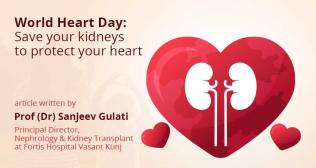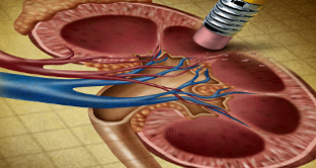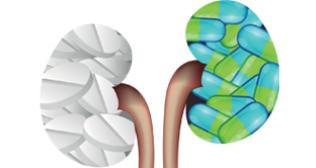
Urinary Incontinence Or Loss Of Bladder Control | Causes & Treatments
Urinary incontinence – also referred to as the involuntary loss of bladder control – is a condition which affects the way an individual hold or releases urine. Thereon, when the muscles in the bladder that control the flow of urine – contract or relax involuntarily – a person is said to be affected by urinary incontinence. Urinary incontinence is said to affect nearly 1 in 10 people over the age of 65 and is a condition commonly prevalent in the elderly. Additionally, urinary incontinence is observed to be twice as common in women as compared to men and nearly half of all women are said to leak urine at some point in their lives.
Although incontinence itself is not a disease, it can have a dramatic impact on an individual’s life. More often than not, it’s can be a symptom of an underlying medical condition. Moreover, this condition can have social implications as well causing a person to feel embarrassed when engaging in activities. For instance, an individual affected with urinary incontinence can lose bladder control while indulging in day-to-day activities such as running to work or even while coughing. There are several different types of incontinence such as stress incontinence, urge incontinence, overflow incontinence, fistula, reflex incontinence, functional incontinence, transient incontinence etc.
Causes of urinary incontinence
Urinary incontinence arises when there are issues with the muscles and nerves responsible for holding or passing urine. Causes for urinary incontinence is generally classified into two categories – temporary or chronic.
Temporary causes range from:
- A vaginal or urinary tract infection (UTI)
- Constipation
- A reaction to certain medications such as heart and blood pressure medications, sedatives, and muscle relaxants which causes stimulation of the bladder and thereby results in an increase in the volume of urine.
- Consumption of certain drinks or food items such as alcohol, chocolate, soda or carbonated drinks, caffeine, foods high in spice/sugar etc.
On the other hand, the most common causes of chronic incontinence include:
- Pregnancy.
- Childbirth.
- Weakened pelvic floor muscles
- Changes with age.
- Menopause.
- Hysterectomy.
- Side effects from a prior surgery.
- Injuries from an accident.
- Enlarged prostate – Especially in older men.
- An obstruction such as a tumor anywhere along the urinary tract, or urinary stones.
- Neurological disorders such as Multiple sclerosis or Parkinson’s disease.
- Birth defects
- A stroke, a brain tumor or a spinal injury.
Owing to a large number of possible causes of urinary incontinence, one should take care to ensure that the symptom is not associated with another medical problem, which is why the correct treatment options should be discussed and selected with the physician.
Treatment : It’s important to work with a physician in order to diagnose and treat these symptoms on an immediate basis as it’s considered vital for maintaining the health of the bladder as well as overall health.
Some widely-recognized therapies for urinary incontinence include:
- Training bladder habits at home which involves establishing a regular urination schedule and teaching people to resist the urge to go to the washroom to urinate.
- Pelvic muscle exercises such as Kegel exercises which can help identify the right muscles to contract.
- Medications — which can help relax bladder spasms including Bentyl (dicyclomine), Cystospaz (hyoscyamine), Detrol or Detrol LA (tolterodine), Oxytrol (oxybutynin), Urotrol (oxybutynin) etc.
- Diet — Incorporating more fiber into the diet which, in turn, can help in preventing constipation. Avoiding foods and/or fluids which can cause irritation to the bladder, including caffeine, acidic foods, and excessive alcohol.
- Surgery — The two common surgical procedures usually advised in order to treat incontinences are a) slings procedures and b) laparoscopic bladder neck suspension. Another common surgical procedure is the sacral nerve stimulation, which involves the placement of a device under the skin that aids in the stimulation of nerves through mild electrical pulses in the pelvis which, in turn, helps improve bladder function.
- Hormone replacement medications including Estrogen treatments.
- Botox (Botulinum Toxin A) injections.
- Medical devices such as Pessary & Urethral insert.



















